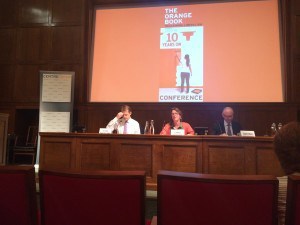The new Conservative leader and British prime minister, Liz Truss, has endured a spectacular collapse in public approval after only a month in office. Her party’s poll ratings have collapsed, and there is an expectation – unthinkable not long ago – that Labour will win by landslide at the next general election. A lot of people have drawn a parallel with a similar collapse under previous Tory prime minister John Major in 1992, after the pound fell out of the European Exchange Rate Mechanism, shredding his government’s reputation for economic competence. Ms Truss’s misfortune followed her government’s first budget, which rocked financial markets, causing a temporary breakdown, followed by much higher mortgage rates. Mr Major lost to a massive landslide in the subsequent general election, put off for as long as he could, in 1997. Ms Truss has only two years to go.
But the episode also puts me in mind of a similar political collapse, suffered by the Liberal Democrats when they entered a coalition with the Conservatives in 2010, led by Nick Clegg. Their polling support shrank to a fraction, and the party was nearly wiped out in the subsequent general election in 2015, and has only partially recovered since. I was a loyal party member at the time – and I still am. The current machinations by senior and not-so-senior Tories is very familiar. Exhortations that the party could turn things around, that it is all unfair, and other variations on denial – together with searing criticism from others, and a steady membership exodus, followed by the disappearance of most of the party’s council base (this last has yet to happen to the Tories, but it surely will). The public turned hostile; it became part of every current affairs comedian’s contract with the BBC that they should heap derision on the party and its leader. I also remember the personal opprobrium heaped on Nick – who evoked a loathing among many members of the public that he never overcame. He fled to America to make his subsequent career. Ms Truss is suffering the same treatment.
Does Ms Truss deserve this? I hate to see politics descending into such personal abuse. And in some ways she is a refreshing change from Boris Johnson, her predecessor. She is clear and focused. This is a little bit of truth that a lot of the misfortune to mortgage rates would have happened anyway. It is a mark of courage to do unpopular things for the longer-term good. Still, she has no electoral mandate to take the government in the direction she has – and she seemingly fails to understand this. And the precarious nature of financial markets was well known before the budget – which makes its content all the more reckless. Her approach to appointing cabinet ministers – reading loyalty ahead of competence – betrayed a complete lack of political skill.
There are lots of contrasts between Nick Clegg and Ms Truss. Nick was a much abler and more rounded leader. He subsequently took up a senior role with one of the world’s most important companies, Facebook (now Meta), and has held down the role successfully, securing a promotion. Few British politicians from any party have been able to pull off such a feat (the only one I can think of is Labour politician David Miliband, now head of International Rescue; he’s perhaps one of the best prime ministers we never had). It is hard to see Ms Truss being offered a senior management role in anything other than a political think tank. Her clarity and focus would equip her well for a number of middle-management roles, but an absence of market or customer awareness, and a blind spot on risk management, would disqualify her from most serious roles. For all his abilities, Nick could not shake off his collapse in popularity – though his high point, during the 2010 election, was much higher than Ms Truss ever achieved. If he couldn’t turn his fortunes around, what chance has Ms Truss?
There was also a striking contrast in what brought about their undoing. In Nick’s case it was because he broke a firm pledge: to abolish student tuition fees. Ms Truss’s problem was sticking to a very foolish pledge – to deliver tax cuts as soon as she took office, regardless of the cost of government intervention on energy prices. Of course the pledge was made to party members – the public had no say in her elevation. The public sees Ms Truss as ideological and incompetent; they saw Nick as sacrificing his political principles for the status of ministerial office – after he’d promised to be different.
Still, there is something the two have in common: a lack of connection with the public at large. Neither had much in the way of a serious contested public elections on their rise to power. They didn’t have careers as councillors; they achieved their ambitions through appealing to party members instead. Nick first became a member of the European Parliament by getting to the top of the list for a list-based proportional election system; he then got elected to the national parliament by getting selected in a safe Lib Dem seat at the only election, in 2005, when such a thing existed. Ms Truss did have a run at being a councillor (in the London Borough of Greenwich), standing twice before being elected in 2006, and standing down in 2010, when she stood for parliament in far away Norfolk. These council elections were all in different wards – there was no sense of building a serious council career. She was just doing her bit while searching for a safe parliamentary seat. I don’t think either she nor Nick expected that the public would react as deeply as they did to their first steps in power. So far as Nick was concerned, going into a coalition is what politicians in minor parties should do, as happens so often in other countries; the reversal on tuition fees was just one of the compromises you have to make to achieve other objectives. Ms Truss seems to think there would be widespread public support for her vision, where it not for all those silly lobbyists and talking heads. And that you implement policies by declaring your objectives loudly and railroading them through with loyal but inexperienced subordinates, regardless of practical difficulties. In both cases they caused a profound breach of trust, both with specific promises – but more generally with what they had claimed to stand for when originally elected. Such breaches of trust are impossible to come back from.
Apart from the fact that Ms Truss achieved the top job in British politics and Nick didn’t, things look bleaker for Ms Truss. Many ambitious Lib Dems MPs in 2010 suspected that they would only get one shot in government in their careers, but accepted that it would be worth it – though I don’t know whether these included Nick. The Lib Dem parliamentary party remained disciplined, the government lasted a full term of five years, and the party had a pretty decent record of achievements within it. Looking back, the most important of these was turning the corner on the promotion of renewable energy. The Lib Dem pupil premium policy also made a profound difference in education. There were other, negative achievements – vetoing or softening Conservative policies. I am, though, probably alone in thinking that the overall balance on austerity policies was right (as implemented rather than as planned), or at least justified based on what was known at the time – apart from excessive restraint on capital spending, which the party argued against. Against this admittedly modest record, Ms Truss stands to achieve very little of her agenda. Her party is divided; the government’s financial position is weak; she doesn’t have enough time.
One thing I think we can learn from the experiences of Liz Truss and Nick Clegg is that it is dangerous to be led by politicians whose careers are built purely on appealing to party members – and not on direct voter appeal – or even a record of achievement in the world outside politics. What to do? Electoral reform could make things worse if the wrong system were adopted. It is one reason that I favour the single transferable vote system – which avoids this pitfall better than any other. But Britain’s politicos don’t want to change the system that has been the basis of their careers. If there is change – which remains unlikely – it is likely to be for a system that includes a role for party lists, which are just as bad as safe seats in the current system. Still a proportional system would do something to constrain the power of those that reached the top – by forcing compromises between parties. A Truss moment would be nearly impossible, and a Clegg moment probably less shocking.
Meanwhile, political parties should reflect on whether it is wise to let their memberships choose their leaders – which they all do – and especially if they are leading the government at the time. Surely this is best left to MPs?


